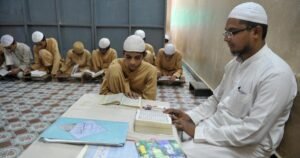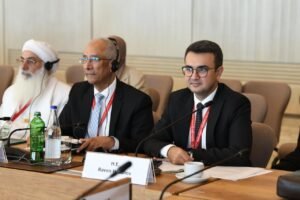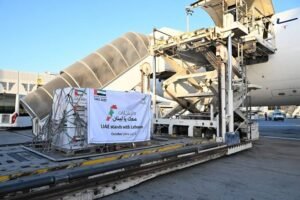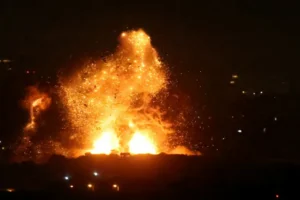Bangladesh rescues hundreds of refugees from boat mishap
Source: Reuters
Bangladesh coastguard has rescued about 400 Rohingya refugees from a boat mishap.
Disclosing this on Friday April 17, 2020, Bangladesh coastguard spokesman, Lieutenant Shah Zia Rahman, stated that the boat had been adrift for over two months. He added that at least 30 lives were lost as they attempted to sail to safety in Malaysia.
“They were at sea for about two months and were starving,” said Rahman.
The 396 surviving refugees: women and children, had set sail in a fishing trawler from the camps in Cox’s Bazar in Bangladesh during February.
It took the coastguard three days to locate the boat in the Bay of Bengal after a tip-off.
According to the coastguard, there were 182 women, 150 men and 64 children rescued from the boat. They were severely malnourished, dehydrated and could barely walk when they landed.
The United Nations High Commissioner for Refugees confirmed in a statement that “Around 30 or more refugees may have passed away at sea as the boat ran out of food, water and fuel during a nearly two months long journey at sea.”
Mohammad, a 40-year-old refugee who was among those rescued from the boat with his three family members, described the horror of being on the ship for 58 days. He said they had reached Malaysia, but been turned away because the authorities became unusually strict due to the coronavirus outbreak and did not allow them to land there
He said the boat had lingered close to the Malaysian shore for several days to try to sneak ashore, but without success, and turned back for Bangladesh.
“We ran short of food and water,” said Mohammad.
“Many children and women were crying. Around 30 people on the boat died because of getting no food and water and we all started losing hope as the bodies of other refugees had to be thrown into the sea,” he added.
Noor Hossain, a Rohingya community leader from Balukhali refugee camp, said there was increasing desperation in the camps, as stricter lockdowns were imposed including a recent block on movement and mobile internet, which was enticing more refugees to reach out to traffickers to help them escape in search of a better life.
Malaysia, which is a Muslim-majority country and has a large Rohingya community, is a popular destination.
“Many young and ambitious Rohingya refugees feel that in Bangladesh they face a grim future,” said Hossain.
“In recent times, after the Bangladesh government imposed more restrictions on the Rohingyas and planned to relocate some of them to a dangerous uninhabited island [Bhasan Char], more and more Rohingya are willing to flee Bangladesh,” he added.
Hossain said that it was also big business for traffickers and agents to traffic Rohingya women from the Cox’s Bazar camps in Bangladesh.
The refugee camp, one of the largest in the world, is home to over a million Rohingya who fled over the border from Myanmar, starting in August 2017, following a brutal army crackdown that the UN has described both as ethnic cleaning and akin to genocide.








